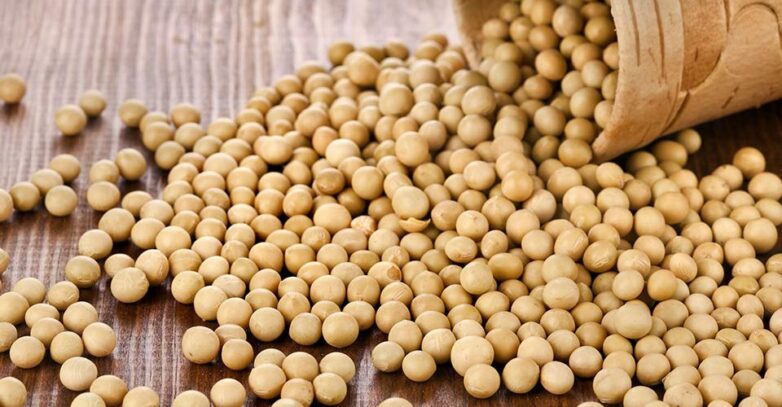Soy is a fantastic plant food however did you have the knowledge it is the case that Men’s Soybean Health Benefits are being questioned? You might have read the article within Men’s Health, which damaged the image of soy by posing questions about its safety of it. This article clarifies that soybean is great food with many benefits and is an excellent protein source. It also has isoflavones which are substances that aid in the management of menopausal hot flushes.
Soybeans are an excellent source of protein
Soy is a great supply of protein that is high in quality. In comparison to animal proteins, soybeans are less saturated fat, but they do contain iron, fiber omega-3 fats, iron, and calcium. Soy foods offer the same benefits when it comes to building muscles as animal proteins. Although, despite the increasing number of studies there are still some people who remain skeptical regarding soy. This may be rooted in outdated notions regarding soy.
Soy is a great source of protein since it has all nine essential amino acids. The majority of protein sources that are derived from plants are deficient in some or all of the vital amino acids. This is why protein powders made from soy are usually the best food source for males. Contrary to dairy and meat soy is a fantastic alternative for men who wish to increase their protein intake but not increase the risk of developing heart disease or other illnesses. Soybeans can help improve your health, so it is essential to take the supplement and use Fildena 100 to help with personal health issues or erectile dysfunction.
Alongside proteins, soybeans are also rich in plant-based fats as well as trace elements. Molybdenum is one of the trace minerals found in beans and can be found in soy. Phylloquinone is a kind in that vitamin K has an essential function in blood clotting. It is a good food source for folate. Soy also is a good source of vitamin E.
Despite being a non-vegetarian food source, it is also rich in phytosterols that are powerful antioxidants. They aid in reducing cholesterol levels, reduce the risk of developing heart disease, and boost the health of your cardiovascular system. Research has also shown that soy has a lower risk of developing prostate and gastric cancer. Soy also decreases LDL cholesterol levels which is a typical diet-related risk aspect for heart disease.
They’re a rich source of isoflavones.
Researchers have reviewed a variety of studies that examine the benefits of soy for health and its effects, including those of isoflavones. Researchers have concluded that taking 40-110 mg of isoflavones every day can reduce bone loss and increase indicators of bone health in women in menopause. More research is required in order to verify these conclusions. For males 40 to 110 mg of soy, a day is equivalent to eating one-third to one cup of prepared soybeans, or tofu. Studies have also connected a diet that is rich in soy to lowering the risk of certain cancers and diseases.
Alongside decreasing blood sugar levels, isoflavones can also improve the sensitivity of insulin. Insulin is the main hormone that allows blood sugars to enter cells to convert them into energy. For women, isoflavones can increase the efficiency of insulin which lets blood sugar get into cells. This means that soy could have a positive impact on the control of blood sugar. Even diabetics may benefit from the use of soy protein supplements.
Isoflavones are an extremely potent group of antioxidants. Apart from fighting free radicals, they provide anti-cancer properties. Research has shown that those who regularly eat soybeans were 29 percent less at risk likelihood for developing cancer of the prostate as compared to those who didn’t consume soy. This could be due to it being true that isoflavones hinder the development of cancerous prostate cells.
Another study investigated the effects of isoflavones and testosterone levels in men. A man aged 60 and a 19-year-old type I man with diabetes consumed 360 milligrams of soy per day, which is nine times more than a typical Japanese man. A review from 2010 found no correlation between isoflavones, sperm quality, and isoflavones. There was also no evidence of an impact regarding the quality or quality of semen in healthy men who consumed soy foods.
They are an excellent source of fiber
There are numerous advantages to men’s soybeans. It is a plant that is abundant in fiber and phytoestrogens which are mild versions of HRT. Research suggests that exposure to isoflavones may be especially beneficial for breast cancer. However, the connection between the consumption of soy products and cancer prevention is not clear. Certain studies suggest that soybeans can aid in managing menopausal symptoms like hot flashes. But the studies are observations. Soy products that contain a small number of isoflavones can be healthy.
Along with the fiber and protein content, soybeans are also rich in Vitamin K. Folate is a vital vitamin, and is involved in blood clotting. Other advantages of soybeans are that it is a great source of protein from plants. Additionally, soybeans are an excellent source of isoflavones. These are crucial for the health of female reproductive organs. The hormone levels of women decrease drastically in the menopausal phase. Women who are menopausal require a high-quality source of protein to remain fit and healthy.
Soybeans are a great source of health benefits for males. They are high in fiber, low in calories, and a good sources of fats, soybeans can increase metabolism and protect your heart. They also may reduce the risk of developing breast cancer as well as prostate cancer. Certain individuals may be sensitive to soy products, so be certain to read the labels on your food carefully. Beans can be used in many different food items and are very versatile in terms of cooking.
Another advantage of soy is that it has the ability to lower cholesterol levels. Research has shown that the consumption of soy may aid women with their menopausal symptoms. Dietitian Dawn Jackson Blatner in Chicago believes that consumption of soy can reduce menopausal symptoms and lower the risk of some chronic illnesses. This could be caused by the fact that soy has phytohormones that are less potent than human estrogens.
They can help control hot flushes caused by menopausal change.
Research suggests soybeans may assist in the management of hot flashes in menopausal women. Consuming soybeans frequently has been associated with fewer and less intense hot flashes. Further studies are needed to verify this connection. At present, there are a variety of ways to consume soy. Learn the potential benefits of soy. Here are some tips to prepare soy to benefit from its benefits.
A study by the North American Menopause Society suggests that a diet high in soybeans may decrease your risk of having hot flashes. After just 12 weeks, 79% of women reported less frequency of hot flashes. Sixty percent had no hot flashes on the whole. Soy products are rich in isoflavones natural hormones that help reduce hot flashes.
A controlled, randomized study conducted by Ye YB et al. assessed the impact of the soybean isoflavone supplement on the frequency of hot flashes and their severity. The study involved fifty postmenopausal women having a BMI over 25. The women who took 100mg daily had fewer hot flashes. Researchers also conducted a controlled, randomized trial that examined the effects of men’s soy supplements on women suffering from menopausal symptoms.
The study found that a diet rich in soy products substantially reduced the frequency of hot flushes for women. Soy products are rich in isoflavones which are chemical compounds that can be found in plants and act as stronger estrogens found in our bodies. The two most popular isoflavones found in soy are genistein as well as daidzein. Soy propanoic acid, as well as daidzein, are broken down by bacteria within the digestive system into more active forms.
They lower the risk of certain types of cancer.
Studies of the consumption of soy for men have revealed that it reduces the chance of certain cancers including prostate cancer. This study was published in the New England Journal of Medicine it is the first study to demonstrate an increase in the chance of developing prostate cancer among people who consume soy-based products. However, the reduction in risk isn’t complete. Along with lowering the risk of prostate cancer soy has also been linked to a lower risk of rectal cancer and colon cancers, as well as to a lesser degree as well as breast cancer.
Soy Protein is the sole plant-based source of all important amino acids. Soy protein is rich in beneficial phytochemicals, such as polyphenols, which help prevent cell damage and help protect the cardiovascular system. According to an extensive review of research on soy protein consumption, it decreased bad cholesterol levels in males by up to 3 percent. A study that covered a wider sample of people found that soy protein consumption was associated with an increase of 15% in the chance of suffering from stroke and heart disease. Furthermore, a review of over 30 studies found that the consumption of soy is associated with a lower risk of prostate cancer among males. Fildena 150 is removing your heart problem.
Soy consumption has been linked to lower risks of lung cancer and breast cancer in males. It could also be a protective factor for women with estrogen receptor-positive breast cancer. It is crucial to keep in mind that these findings haven’t yet been confirmed through scientific research, however, soy consumption has been linked to a lower risk of breast cancer, and could even be a factor in preventing breast cancer in males.




